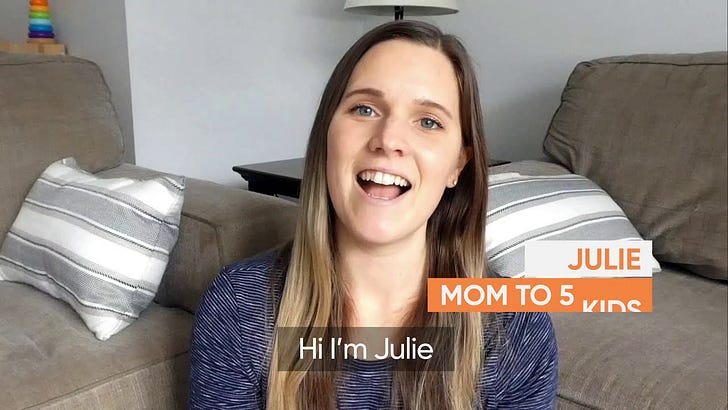Initial Thoughts on the Karrot (Danggeun) IPO (Largest Used Goods E-Commerce Platform in Korea)
Danggeun (Karrot) is the largest used goods e-commerce marketplace in Korea. There have been some local reports that the company could complete its IPO as early as 2025.
In the private market, some shares of Karrot were put up for sale recently, and the valuation of the company ranged 2.5 trillion won 2.7 trillion won.
The company has tremendously scaled up its business in the past couple of years, in terms of sales and profits.
Source: Youtube
Danggeun (Karrot) is the largest used goods e-commerce marketplace in Korea. There have been some local reports that the company could complete its IPO as early as 2025. In our view, the company is more likely to complete its IPO sometime in 2026.
The company has tremendously scaled up its business in the past couple of years, in terms of sales and profits. Amid more difficult economy, millions of more people in Korea are using Karrot to buy and sell goods and services at more affordable prices closer to their homes.
In the private market, some shares of Karrot held by early investor Kakao Ventures were put up for sale recently, and the valuation of the company ranged US$1.8 billion (2.5 trillion won) to US$2.0 billion (2.7 trillion won).
Karrot's last funding round was in 2021 when the company was valued at US$2.17 billion. Given that the valuation multiples of e-commerce companies tended to be much higher in 2021, Karrot's recent private market valuation that is slightly below the levels in 2021 suggests a strong showing.
Danggeun (Karrot) Company Background
Karrot is a secondhand marketplace app that links buyers and sellers based on their locations and reviews. The combination of ease of use, the quick neighborhood-based marketplace, and location-based services using artificial intelligence are the main reasons why the Korean consumers have flocked to using Karrot.
In recent years, the company has capitalized on its strength in used goods e-commerce platform to expand into real estate, job postings, and neighborhood related lifestyle related services and meeting platform.
Danggeun Market is easy to use as the sellers register their items on the app, including a valid picture, description, and price. The buyers then express their interest in the product, talk, or text with the sellers, then typically send the money through a banking app, and typically the buyers and sellers meet directly since they live mostly in or nearby their own neighborhoods.
The name "danggeun" translates to "carrot" in Korean. The founders aimed to address the limitations of existing online marketplaces by focusing on local transactions, thereby enhancing trust and convenience. One of Karrot's distinguishing features is its hyperlocal approach.
Initially, the app limited transactions to users within a 6 km radius, a policy that has been adjusted to 10 km in Korea and Japan, and up to 50 km in the U.S. and Canada. This proximity-based model enhances trust among users and encourages face-to-face interactions. In Canada, the app has surpassed 1 million users, with services available nationwide except in the French-speaking province of Quebec.
In 2023, Danggeun Market introduced a business profile feature, enabling small enterprises, particularly beauty and hair salons, to create free profiles on the platform. This feature includes a reservation system, facilitating appointment bookings directly through the app. The introduction of this feature has led to a 65% increase in the number of beauty and hair shops using the platform.
All users use nicknames or IDs, rather than with real names. The range of residence can also be arbitrarily widened or narrowed, and you can register your favorite keyword to select and check the product of that keyword. Easy and quick purchase is possible.
Major investors - Established in 2015, Karrot received 40 billion won ($33.5 million) in funding in September 2019 from Altos Ventures, Goodwater Capital, Softbank Ventures, Kakao Ventures, Strong Ventures, and Capstone Ventures.
Major competitors - The company's major competitors in the e-commerce platforms include Coupang, Joongonara, 11st, Gmarket, and Naver.
Buyer and seller meet directly which help to reduce fraud - Karrot is mostly based on direct transactions as both the buyer and seller meet in person (typically nearby the seller’s apartment). Hence, this drastically reduces the chances of fraud.
Although other competing websites such as Joongonara also allow the buyers and sellers to meet directly to conduct the transactions, they are often relatively far away from each other (typically more than 1 hours away), unlike at Karrot where most of the buyers and sellers conduct their transactions in their nearby neighborhoods.
For the Karrot users, there is no need to buy/get boxes and spend time on packaging the goods for sale. There is no need to go to post offices or nearby convenience stores to send the products for sale and wait for the products to arrive.
Because Karrot's business is centered on nearby neighborhoods, the company can benefit from targeting its potential advertisers to specific locations. As the company continues to gain more customers and increase the transaction volume, the advertising revenue of the company is likely to experience strong growth.
Keep reading with a 7-day free trial
Subscribe to Douglas Research Insights to keep reading this post and get 7 days of free access to the full post archives.



